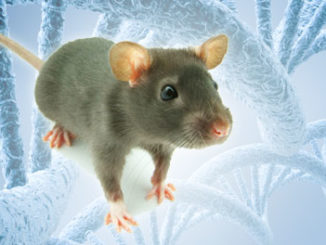Articles that explore the ways in which epigenetic drugs may be used to stave off cancer and other diseases. Additional articles cover topics related to drug abuse, rehab, and addiction.
Recent research at the University of Missouri School of Medicine sheds some light on the epigenetic changes to proteins that occur as a result of . Their results could help progress treatments for liver diseases linked to alcohol consumption. The lead author of the study and Margaret Proctor Mulligan Professor at the MU School of Medicine, Shivendra Shukla, PhD, says that “we know that chronic alcohol use is damaging to the liver, but binge drinking amplifies that damage.” Chronic liver [more…]
Researchers have found that the regulation of a specific gene located in an area of the brain linked to depression and drug addiction can reduce the way someone responds to drugs and stressful situations. A mouse study that focused on the epigenetic regulation of a single gene was carried out at the Icahn School of Medicine at Mount Sinai and was recently published in Nature Neuroscience. Earlier research supports a connection between epigenetic regulation and diseases related to depression and [more…]
Although kidney stones are common and often cause excruciating pain, there are few options for treatment and a surprising lack of drugs to medicate the condition. In a previous blog post we discussed how a drug that was already being used to treat multiple sclerosis showed promising results for removing painful memories of those who experienced trauma. Now, a new mouse study at the Washington University School of Medicine in St. Louis indicates that a class of drugs which have [more…]
According to a new study from University of Pittsburgh School of Medicine, a father’s excessive drinking behavior could set up his son for , even before conception. Results published in PLOS ONE demonstrate that mice show more sensitivity to alcohol’s effects and are less likely to drink it if their fathers were chronically exposed to the substance before mating. This recent animal study adds to the evidence linking heredity and the propensity for alcohol abuse. Previous studies support the inheritance of [more…]
Scientists at the Virginia Commonwealth University School of Medicine discovered that the drug fingolimod, which is used to treat multiple sclerosis (MS), could potentially benefit individuals who wish to get rid of painful and traumatic memories. While MS is still not entirely understood, the disease involves a process that is immune-mediated in which the immune system attacks healthy parts of the body, namely the central nervous system – the spinal cord, brain, and optic nerves. Fingolimod, or FTY720, is a [more…]
A study conducted at Georgia State University and the University of Georgia gives us novel insight into the chemoresistance of ovarian cancer and offers a potential therapeutic approach to overcoming it. Inhibiting enzymes that lead to changes in gene expression could decrease chemotherapy resistance in ovarian cancer patients, researchers say. Dr. Susanna Greer and her colleagues have identified two enzymes that suppress proteins that regulate cell survival and chemoresistance in ovarian cancer. Ovarian cancer is the deadliest of all gynecologic [more…]
Is it possible for a drug to dampen a traumatic memory? It may be, as researchers are discovering that a fundamental epigenetic mechanism is responsible for long-term fear memory. Neuroplasticity, also called brain plasticity, refers to the changes in neural connections such as synapses and neural pathways as a result of changes in behavior, environmental exposure and neural processes (1,2). While it was once believed that the brain is a physiologically static organ and its networks were fixed, research over [more…]








